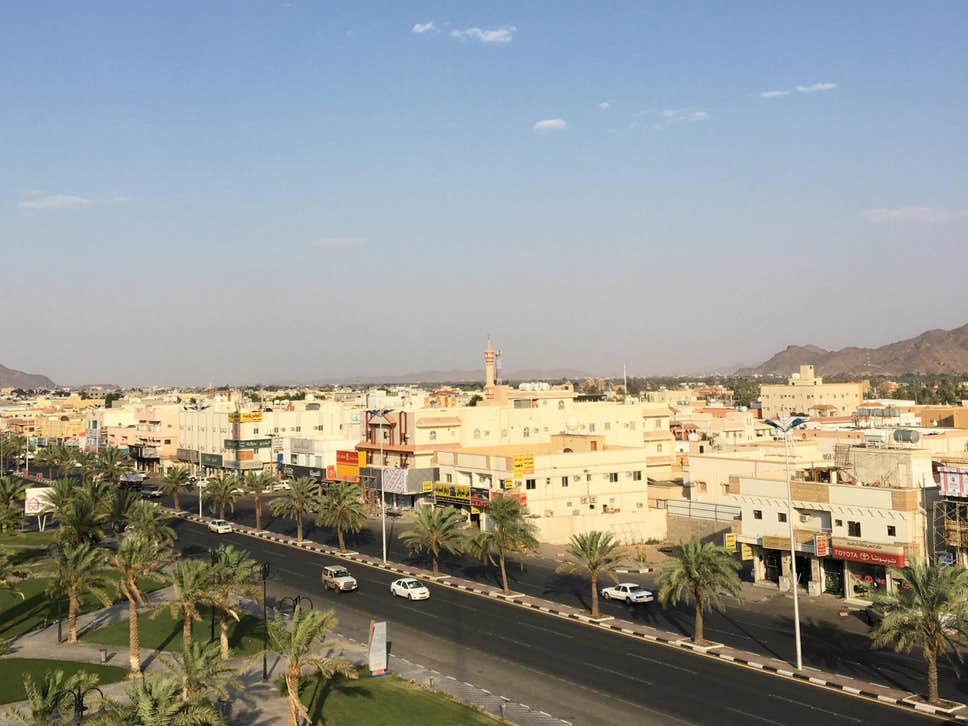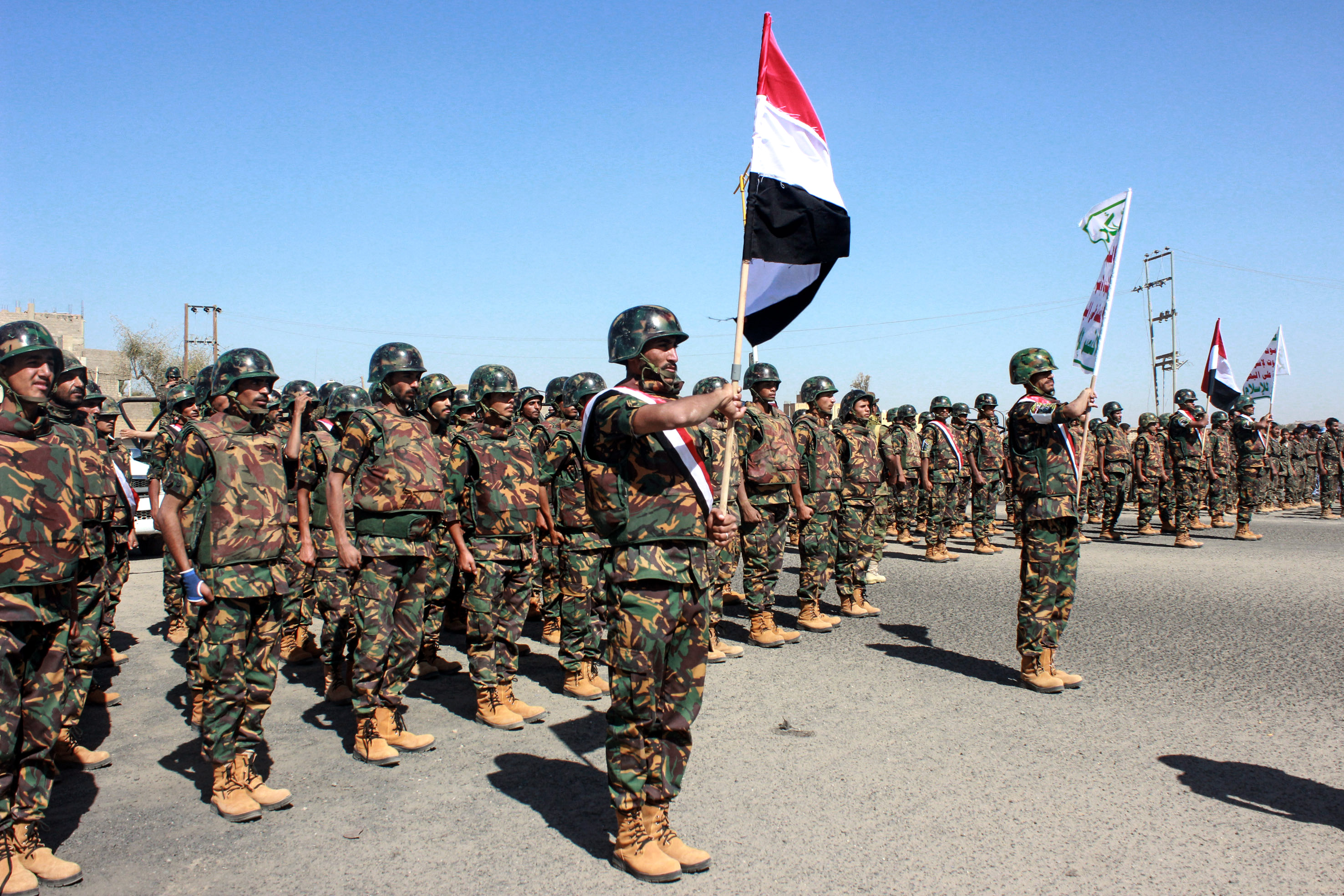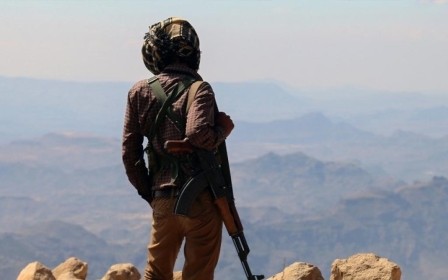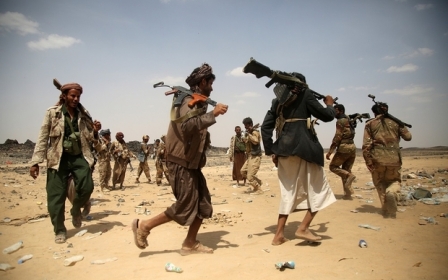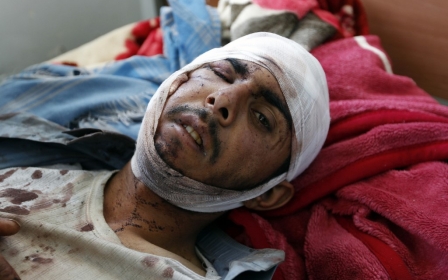'No one knows the truth but God': Parents of missing Yemeni fighters search for sons
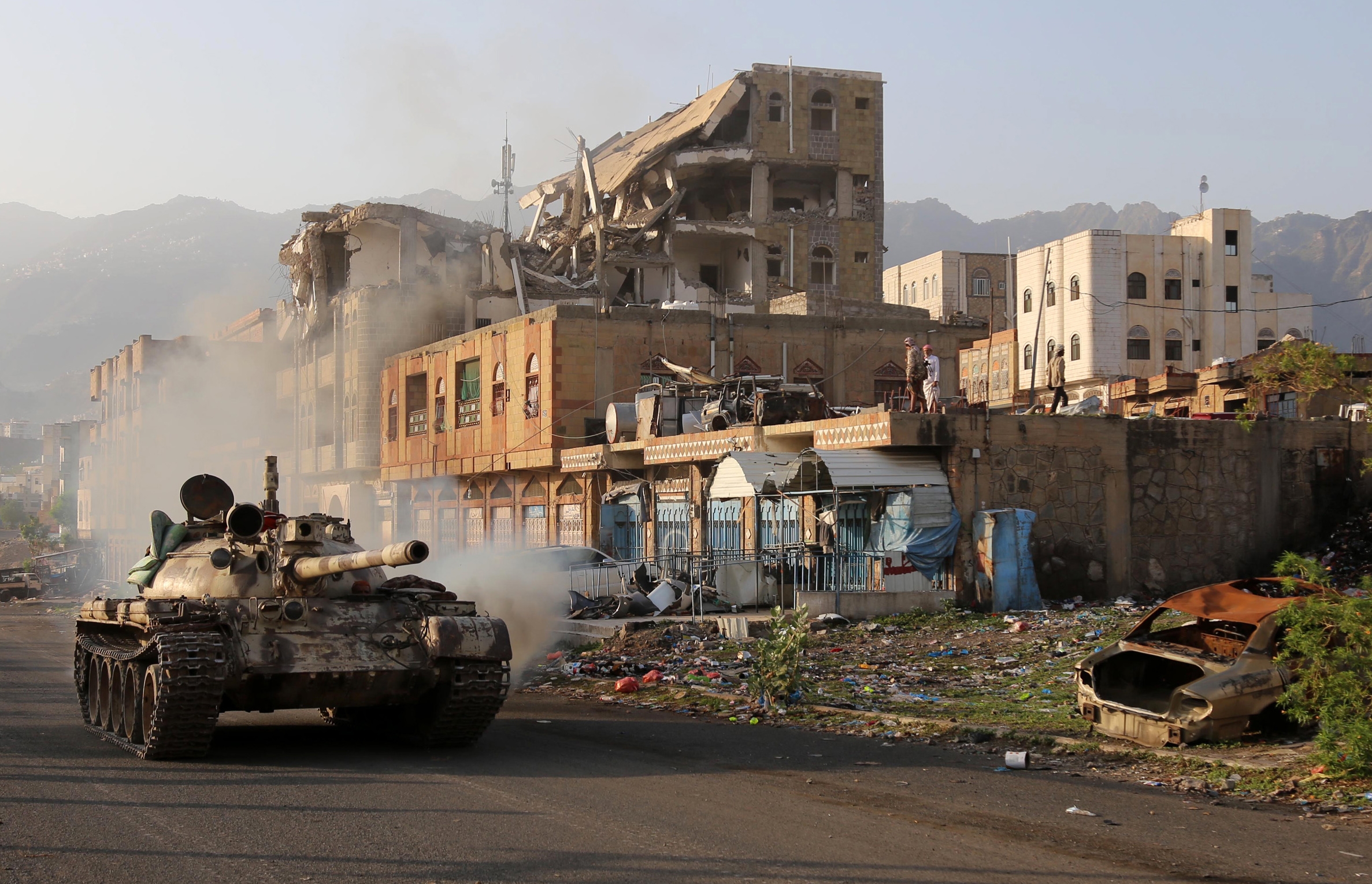
Khuzam Mohammed leaves her house every day to ask her son’s friends about her son Nael, 33, who joined the battles on Yemen’s border with Saudi Arabia in March, but no one knows anything about him.
Nael used to call his mother every Friday, while she would call him from time to time to make sure he was safe, but his mobile phone has been disconnected since August, and she has not heard from him since.
'I gather rumours about my son and the fighters during the day, and at night, I stay up analysing them'
- Father of a missing fighter, Ahmed al-Azazi
Some people, including a leader in the Saudi border city of Najran, told Mohammed that he was captured by the Houthis, others said he was killed, and some rumours said he’s been wounded and has fled to Najran.
“I am very worried about him and I cannot sleep these days. I think about him all time,” Mohammed told Middle East Eye.
By the end of August, the Houthis reportedly besieged hundreds of fighters in the Wadi Abu Jabara area in Saada province’s Ketaf district for four days. Reports from the area say most were killed or captured, while only a few were able to flee to Najran.
New MEE newsletter: Jerusalem Dispatch
Sign up to get the latest insights and analysis on Israel-Palestine, alongside Turkey Unpacked and other MEE newsletters
“A few of his comrades fled to Najran and they contacted their families but my son is missing with hundreds of others from our district.”
Nael and many of the missing soldiers are natives of the Jabal Habashi district in the southern city of Taiz. Families say they are doing their best to find their sons.
Mohammed prefers to spend her time with other mothers of missing fighters, for they feel solidarity with one another and exchange news about their sons.
“We heard a lot of rumours about our sons over the past two weeks, but it seems that no one knows the truth but God,” she said.
The mothers say they regret allowing their sons to join the war, and have taken a vow to never let their children fight again.
No one knows but the Houthis
Ahmed al-Azazi, 47, the father of Zaed, a 24-year-old missing fighter, said he has contacted all the fighters he knows in Najran but none of their mobile phones were connected.
He was however able to get information from a fighter who arrived in Marib after having fled the border.
“The fighter told me that only a few fighters had fled the battles but most of them fell into the hands of the Houthis,” Azazi told MEE.
'No one can imagine how worried I am about my son'
- Ahmed al-Azazi
“The fighter confirmed that there were dozens of dead bodies in the valley and no one has buried them because of the Houthi siege.”
Like many fathers of missing fighters, Azazi spends his day moving from one area to another asking for people in Najran who can provide him with any information about his son.
But no real information has yet turned up, only rumours, of which there are plenty.
“I gather rumours about my son and the fighters during the day, and at night, I stay up analysing them,” Azazi said.
“No one can imagine how worried I am about my son.”
When Azazi contacted a military leader in Najran, the latter asked him to send his lawyer to a certain man in order to receive his son’s payments, which did nothing but amplify his fears that his son was either killed or is being held captive by the Houthis.
Every night, Azazi watches Houthi TV channels, in case they give any news about the fate of the fighters or air interviews with the captives.
The Houthi TV channel Al-Masirah used to air interviews with enemy captives from different fronts, and that’s how families would find out about their sons. But that has yet to happen this time.
“No one knows the truth but the Houthis… The last glimmer of hope I have is that my son might appear on a Houthi channel,” Azazi said.
Prisoners hit in air strike
Reports shared on Facebook by a number of pro-government accounts said around 800 fighters from Taiz, 600 from Ibb, 300 from Al-Jawf and 200 from Dhamar were captured in Ketaf and were transported to different prisons.
The reports also said that one of the vehicles transporting the captured fighters was hit by a Saudi-led coalition air strike on a road far from the besieged area, killing and wounding many.
A Houthi leader and a member of the rebels’ political council, Mohammed al-Boukhaiti, wrote on Facebook that the information in the pro-government reports was true.
“The countries of aggression [Saudi-led coalition members] have targeted their own mercenaries,” he said.
Economy, not religion
Saber, 29, is a broker who takes Yemenis with zero fighting experience from their villages in Taiz’s rural areas to the Saudi border.
'The fate of these fighters was to either be killed or captured, and that’s what happened'
- Broker, Saber
Saber fought on the border for one year before becoming a broker. He took hundreds of fighters, including some of his friends, to fight on that front line under the leadership of Salafi leader sheikh Raddad al-Hashimi.
“It’s fatalism. No one can change their fate, and we need to surrender to it,” Saber told MEE, using only his first name. “The fate of these fighters was to either be killed or captured, and that’s what happened.”
Saber, himself not an Islamist, and other brokers insist that the fighting on the borders is “Jihad”, a term used to describe a holy war in defence of Islam, even though Salafi extremists in Taiz say it is not.
“If these fighters join the war believing it is jihad, then this is what it is,” Saber said. “If these jihadists don’t win battles in this world, they will win heaven in the other life.”
But most mothers of missing fighters believe that of their sons have joined the battles for the sake of money, and not because of religion.
“Our sons are fighting Yemeni Muslims [the Houthis] on the side of invaders [the coalition], so they are definitely not fighting for the sake of religion,” Mohammed said.
Mohammed believes that brokers take advantage of people’s financial woes, and encourage the needy to join the fighting.
“The bad economic situation forced our sons to join the fighting, while brokers encouraged them and facilitated the way for them to reach the battlegrounds,” she said.
“Fighting the brokers should be a priority for the wise, so that we stop losing our sons.”
Middle East Eye delivers independent and unrivalled coverage and analysis of the Middle East, North Africa and beyond. To learn more about republishing this content and the associated fees, please fill out this form. More about MEE can be found here.


